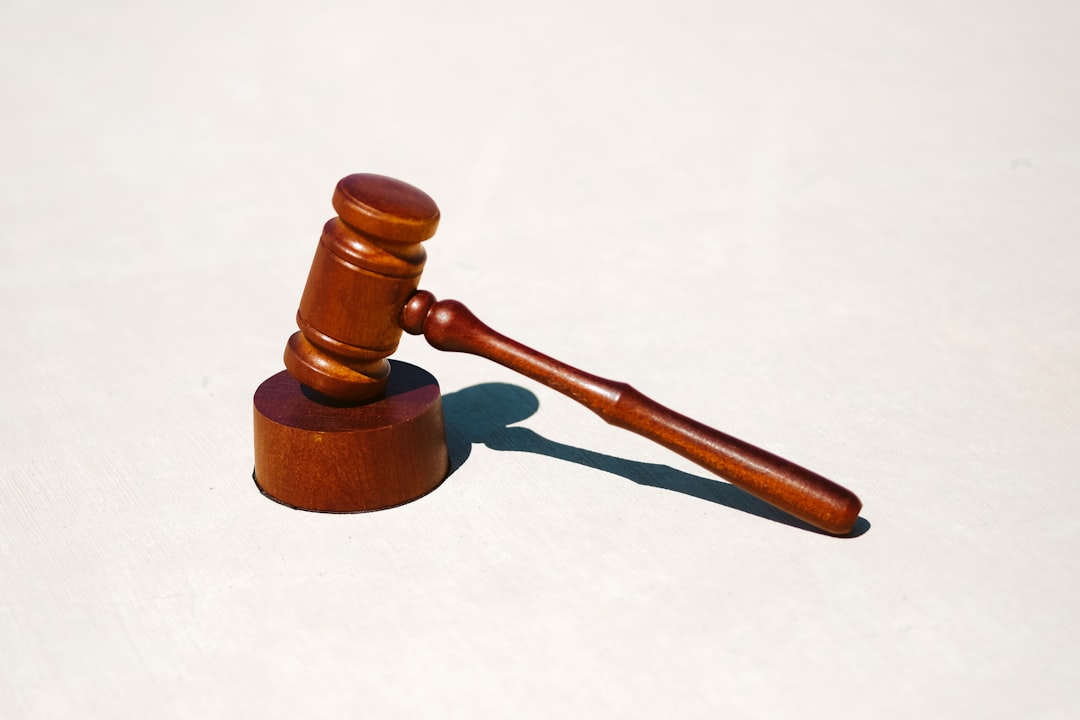The integration of Artificial Intelligence (AI) into sexual assault investigations in Los Angeles, CA, offers potential advantages by analyzing data faster and more accurately but raises crucial ethical concerns. Key issues include algorithmic bias, privacy protection for victims' sensitive information, and ensuring the fairness and reliability of AI-generated evidence. Sexual assault attorneys in Los Angeles must stay informed about these developments to effectively utilize AI while maintaining ethical standards and protecting their clients' rights, balancing technological advancements with legal and ethical imperatives.
“Artificial Intelligence (AI) is transforming law enforcement, including sexual assault investigations. This article explores the ethical considerations surrounding AI integration in LA’s legal system. We delve into its benefits for evidence analysis while scrutinizing potential pitfalls such as bias, privacy violations, and data protection for victims. Additionally, we examine the crucial role of a sexual assault attorney in navigating AI-generated evidence to ensure fair and just outcomes for all parties involved.”
Understanding AI Integration in Sexual Assault Investigations

In recent years, Artificial Intelligence (AI) has emerged as a potential tool to aid in sexual assault investigations. AI can analyze vast amounts of data, including digital evidence and victim statements, much faster and more accurately than human investigators. This capability is especially valuable in complex cases where traditional methods might be time-consuming. For instance, AI algorithms can identify patterns or inconsistencies in digital media, helping sexual assault attorneys in Los Angeles, CA build stronger cases.
The integration of AI into sexual assault investigations brings about several ethical considerations. Privacy and data security are paramount concerns, as the handling of sensitive victim information must be protected from breaches or unauthorized access. Additionally, ensuring algorithmic fairness is crucial to avoid potential biases that could impact case outcomes. Sexual assault attorneys in Los Angeles, CA must stay informed about these developments to effectively navigate the use of AI in their legal practice while upholding ethical standards and protecting their clients’ rights.
Ethical Implications for Law Enforcement Agencies in LA

The integration of AI into sexual assault investigations in Los Angeles, while offering potential advantages, raises significant ethical concerns for law enforcement agencies. One primary issue is the risk of algorithmic bias and its impact on fair and accurate decision-making. AI systems are only as unbiased as the data they are trained on, and if this data reflects existing societal biases or historical inaccuracies, it can lead to unfair profiling and marginalization of certain communities. In Los Angeles, where a diverse population includes various ethnic and socioeconomic groups, ensuring that AI tools do not perpetuate or exacerbate existing disparities is paramount.
Additionally, the privacy and security of sensitive victim information are critical considerations for sexual assault attorneys in LA and law enforcement alike. As AI technologies often require vast amounts of data to function effectively, proper safeguards must be in place to protect victims’ identities and personal details from unauthorized access or misuse. Transparent protocols and guidelines should be established to govern the collection, storage, and utilization of such data, ensuring that the rights and dignity of every individual involved in sexual assault cases are upheld.
Privacy and Data Protection Concerns for Victims

When utilizing AI in sexual assault investigations, privacy and data protection become paramount concerns for victims. In Los Angeles, where individuals often turn to sexual assault attorneys for guidance, the use of advanced technologies raises critical ethical questions. Victims may be reluctant to participate if they feel their sensitive personal information is at risk of exposure or misuse. This concern is especially acute given the highly intimate nature of sexual assault cases and the potential for data breaches or unauthorized access to compromised records.
AI systems require vast amounts of data, including personal details, medical histories, and forensic evidence. Ensuring that this data remains secure and confidential is crucial to maintaining trust in the legal system. Sexual assault attorneys and law enforcement agencies must prioritize robust data protection measures to safeguard victims’ privacy rights, ensuring their cooperation throughout investigations without compromising the integrity of the evidence or putting their safety at risk.
Bias and Fairness in AI-Assisted Decision Making

AI algorithms, when used in decision-making processes, must be meticulously designed and rigorously tested to ensure fairness and mitigate bias. In the context of sexual assault investigations, where accuracy and sensitivity are paramount, any form of bias can have severe consequences. For instance, if an AI system is trained on historical data that contains inherent biases—such as disproportionate representation of certain demographics or underreporting from marginalized communities—it may reproduce and amplify these disparities in its recommendations.
A sexual assault attorney in Los Angeles CA, for example, could face challenges when relying on AI-assisted evidence analysis if the technology has not been carefully calibrated to account for potential biases. This is crucial as the fair administration of justice demands that every piece of evidence be evaluated impartially. By ensuring transparency and accountability in the development and deployment of AI tools, investigators can enhance the reliability of their findings, ultimately safeguarding the rights and interests of all individuals involved in legal proceedings related to sexual assault.
The Role of a Sexual Assault Attorney in Navigating AI Evidence

In the complex landscape of sexual assault investigations, a Sexual Assault Attorney in Los Angeles CA plays a pivotal role in navigating and interpreting AI-generated evidence. As artificial intelligence continues to revolutionize legal proceedings, its application in such sensitive cases demands meticulous handling and expert knowledge. These attorneys are crucial in ensuring that AI tools, while enhancing efficiency, do not compromise the integrity of evidence or infringe upon the rights of individuals involved.
A sexual assault lawyer must possess a deep understanding of both traditional investigative methods and emerging AI technologies to effectively guide their clients through this process. They collaborate closely with forensic experts and investigators to critically assess AI-generated data, such as facial recognition analyses or pattern matching algorithms, ensuring they align with established legal standards and ethical practices. This specialized skill set is essential in navigating the intricate web of technology and law, ultimately advocating for the just resolution of sexual assault cases.






